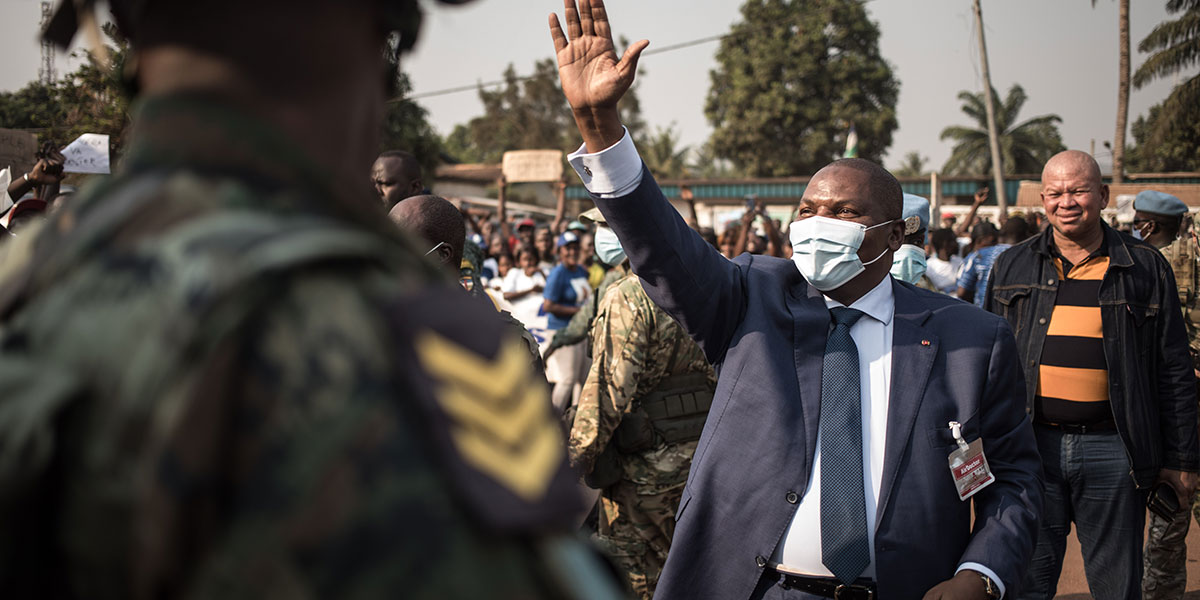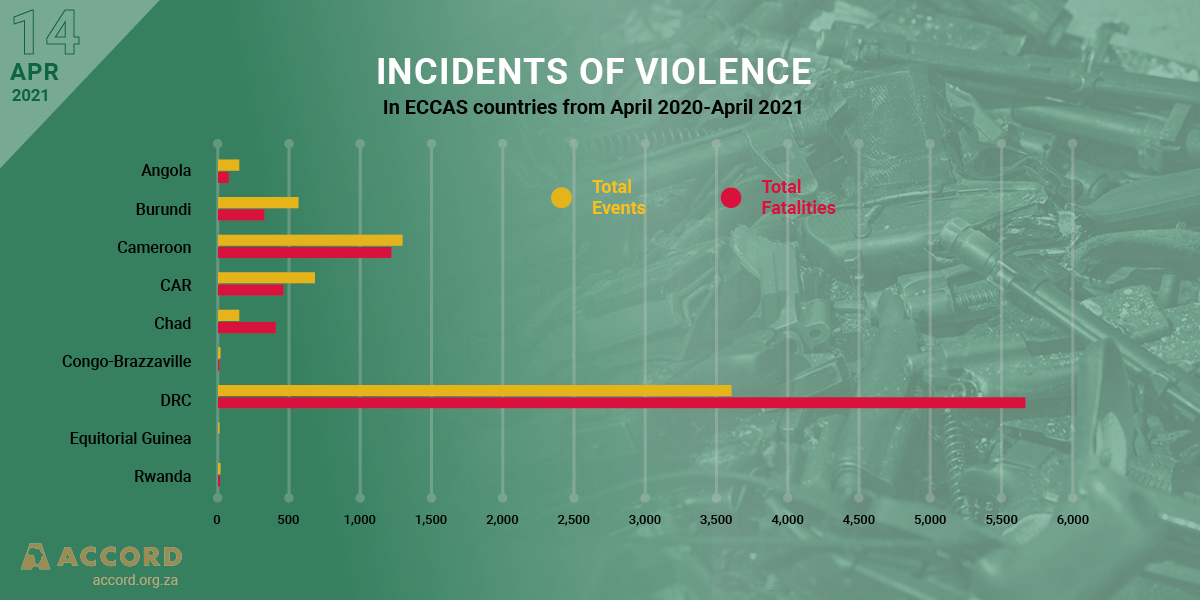CAR has been in crisis for decades. The recent armed confrontation stemmed from President François Bozizé’s ousting from power in 2013 by the Séléka rebellion. The anti-balaka vigilante groups formed and fought the rebels, and thousands have been killed and displaced since the beginning of the war. It is in this context that the United Nations Multidimensional Integrated Stabilisation Mission in the Central African Republic (MINUSCA) was deployed with the task of helping the government to stabilize the situation.
Is an even more militarised peacekeeping force the appropriate tool to achieve sustainable peace in #CAR? #MINUSCA
Tweet
More recently, towards the end of 2020 and early 2021, violence marred the electoral process in which President Faustin Archange Touadéra was re-elected. The Coalition of Patriots for Change (CPC), a new coalition of armed groups, disrupted the electoral process and stopped people from voting in several areas.
This new wave of violence, and how the Government, the UN and others responded to it reflects the broader influence of militarism in the CAR and the challenge it poses for achieving and sustaining peace. On one hand, in the context of the political and security crisis in the CAR, regional and sub-regional organisations have assumed a larger role in maintaining peace and security, often by advancing a militarized approach to resolving a dynamic political situation. On the other hand, political elites in CAR also have a history of resorting to the use of violence, via the formation of armed groups, to pursue their political and economic interests.

Militarism is historically constructed. Currently in Africa, military attitudes are advanced by both international development actors and policy makers from regional organisations. Similarly, recent trends in international peacekeeping insist on pursuing more robust, military-focused operations in the name of peace and stabilisation. In addition to African Union military observers and the UN peacekeeping mission, Russian mercenaries and Rwandan troops have also been used to protect the government, its people, and the electoral process against the armed groups.
African elites also play a crucial role in advancing and justifying military violence in #CAR.
Tweet
In 2017, the Security Council voted to increase the number of troops to support the protection of civilians as the UN was militarily overstretched. Now, in March 2021, the Security Council voted for a similar increase of MINUSCA troops in the CAR. This move raises the question as to whether increased military capacity is an effective strategy for peacekeeping? This question is certainly not to deny the role that the peacekeeping mission has played in helping to secure the recent elections, but it asks if an even more militarised peacekeeping force is the appropriate tool to achieve sustainable peace?
African elites also play a crucial role in advancing and justifying military violence. In the context of the CAR, the distrust that political elites feel towards their peers and global actors’ handling of the country’s insecurity is fuelling their support for militarist practices. The specific history of the CAR seems to indicate that elites have become accustomed to the use of violence to resolve their anxieties about their power, life, and death.
The FACA (Forces Armées Centrafricaines) have received significant support, both from the population, and political elites, despite being historically considered an ineffective and undisciplined army. The FACA has frequently been accused of human rights violations, rape, and protection rackets. International partners ramped up their military training only to realize that a number of the FACA troops had deserted their positions when the CPC launched attacks on Bangui in January 2021. However, with international support, the national army succeeded in claiming back several towns from rebel-held areas. It remains unclear whether this was a tactical withdrawal of rebels from main towns, or how this will unfold in the mid to longer term.
Top-down and bottom-up approaches to peace need to be promoted, and more importantly sustained while these militarist stance frameworks are unpacked.
Tweet
Almost two decades ago, elected President Patassé gave up on negotiations with and opted for defeating Bozizé and his rebellion militarily, with the support of Jean-Pierre Bemba’s rebels from the Democratic Republic of the Congo (DRC) as well as with the support of Libyan troops who were guarding him, much like how the Russians are now guarding Touadéra.
President Touadéra, now confident in the protection of his power, wants a dialogue without rebels. Similarly, this militarist context allows him to exclude the political opposition from the dialogue in its initial stage of consultations while also restraining their international mobility. Touadéra is in consultations only with civil society leaders and other government branches.
Among the scholars working on the CAR, there is a consensus on the extent to which violence plays a key role in the politics of the country. As much as this needs to be reiterated, it also needs deeper questioning from various peace-minded actors. Some analysts are suggesting that the USA could be a neutral third party worth considering in the forthcoming dialogue mainly because of the distrust between neighbouring countries in the Central African region. What is clear is that both top-down and bottom-up approaches to peace need to be promoted, and more importantly sustained while these militarist stance frameworks are being questioned and unpacked.
Gino Vlavonou is a consultant with the Conflict Prevention and Peace Forum (CPPF) of the Social Science Research Council (SSRC).


